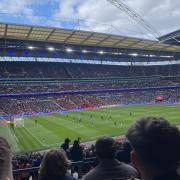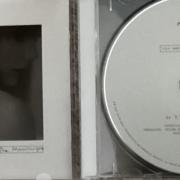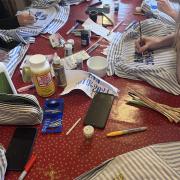
For years music has been a key aspect of human life and learning an instrument is a great way to improve mental and social skills. Learning at a young age makes it easy to carry this skill into later life and as a result the number of children playing in the country is rising.
Albert Einstein, known to be one of the brightest people ever to have lived, said that ‘if I were not a physicist, I would probably be a musician’ and that ‘life without playing music is inconceivable for me’. He played the violin, which he named ‘Lina’, and credited it for most of the joy in his life. This is a common theme, with Neil Armstrong, Thomas Edison and Leonardo Da Vinci, some of the most successful people in history, all playing instruments.
This is clear proof that the most intelligent and successful love to play and listen to music, so this should therefore be a key part of a child’s education. Furthermore, playing an instrument expands your social circle as joining ensembles and bands is a great way to meet new, like-minded people.
There have also been studies which suggest that music helps to stimulate the brain whilst also improving memory, creativity and confidence; leading to greater academic success. Given that learning an instrument takes a lot of time-management and practice, these skills are embedded into a child’s mind from a young age, inevitably helping them in adult life. However, first and foremost, music is a fun and enjoyable thing to play and listen to, inducing a great sense of achievement after conquering a particularly challenging piece.
All of these benefits make the prospect of all children learning music impossible to ignore, and as a result many schemes have been set up to introduce this valuable part of education into as many young people’s lives as possible. These have clearly been successful, as surveys by ABRSM show an impressive rise in the number of children claiming to know how to play a musical instrument. In 1999, 41% of children could play an instrument whereas in 2014 this rose to 76%. This is partly due to the growing dominance and visibility of popular music styles and the instruments that they use. The government has introduced over 100 music hubs across the country and figures released in 2011 show that over 700,000 children were taught to play a musical instrument through them. These are backed by £300 million in funding and almost 9 out of 10 schools benefitted from this scheme.
Many charities have also been set up to provide the opportunity to learn music to children despite where they live, who they are or what they are going through. The charity Youth Music and the government initiative Wider Opportunities are two such organisations and have made great progress in the local area, allowing pupils to learn about and play music.
It is also interesting to look at the most popular instruments among children and how society has influenced these in recent years. The same ABRSM survey shows that keyboard is the most popular choice, with 30% of child learners playing it. This is followed by piano, recorder, classical guitar, drum kit, electric guitar, violin, flute, percussion and bass guitar. The majority of these instruments are common amongst popular music styles such as hip hop and rock, as children want to play music they enjoy and recognise.
Personally, I play classical guitar and started learning in Year 3 during primary school. I have definitely seen the benefits of learning this instrument and have found that it offers a much-needed creative distraction from my academic studies. Playing the guitar is extremely enjoyable and I hope to carry this skill through to adulthood and would recommend it to any child looking to take up a musical instrument.
Overall, the benefits of learning a musical instrument are clear, improving yourself physically, mentally and socially. As a result, it is reassuring to see that the number of child learners is increasing, and music is reaching those from all different backgrounds and communities. Charities and government initiatives have prompted this change, and hopefully in the future even more children will be able to learn and play music. I sincerely wish that the government does not cut funding in this crucial area in the coming years and that future leaders continue to recognise the importance of music for young people.
Toby Gwynne


























